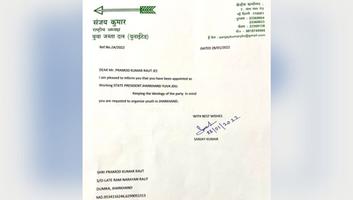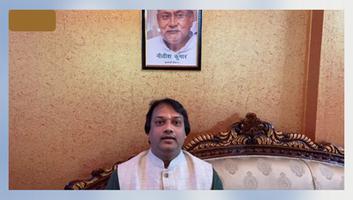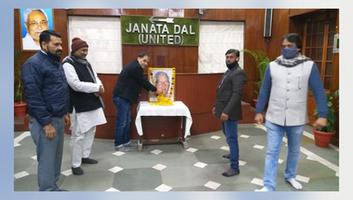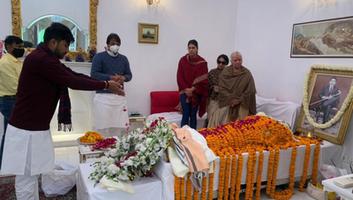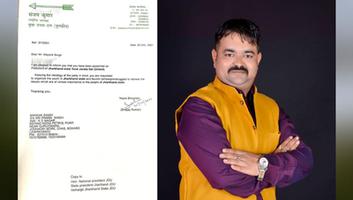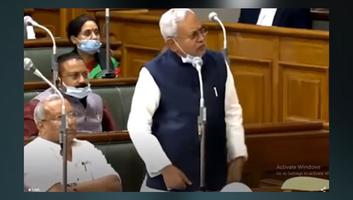Kali River East - Partnerships and Programs in Action
- By
- Rakesh Prasad
- Raman Kant
- January-19-2018
WaterKeeper Alliance is an environmental organization founded in 1999 with its headquarters in New York, U.S.A. Today, Waterkeeper Alliance unites more than 300 Waterkeeper organizations and affiliates that are on the frontlines of the global water crisis, patrolling and protecting more than 2.5 million square miles of rivers, lakes and coastal waterways on six continents.

From Alaska to the Himalayas, the Great Lakes to Australia, the Waterkeeper movement defends the fundamental human right to drinkable, fishable and swimmable waters, and combines firsthand knowledge of their local waterways with an unwavering commitment to the rights of their communities.
Mr. Raman Kant has been appointed as East Kali Waterkeeper to protect the waterbody from year 2015. He has been active on ground since more than a decade to study and analyze the waters at different locations, keep a track on pollution levels and sources, outreach the polluting industries and concerned government departments, organize awareness campaigns with communities residing at the banks of the river among other efforts. He is also acting as an advocate on behalf of the communities and is the first contact person for any issues near the river for the locals. Raman also made his presence at the annual WKA conference held at Utah, U.S.A in year 2017.
WWF India is a science-based organization established in 1969 which addresses issues such as the conservation of species and its habitats, climate change, water and environmental education, among many others. Over the years, its perspective has broadened to reflect a more holistic understanding of the various conservation issues facing the country and seeks to proactively encourage environmental conservation by working with different stakeholders – Governments, NGOs, schools and colleges, corporate, students and other individuals.
NEER Foundation with support of WWF India undertook a research program of the whole length of the river in year 2015. Water samples from the surface of the river and from underground near the river were collected from different locations in all eight districts where the river flows, which were tested at a Government certified laboratory. The whole analysis data was reported to WWF India and is available at NEER Foundation for further studies.
Programs
With the ongoing efforts by the East Kali Waterkeeper (Mr. Raman Kant), the water body has been successfully included in the rejuvenation plan of Holy Ganga River by Ministry of Water Resources, Govt. of India. The Ministry will formulate a plan which will focus on cleaning the rivers, increasing plantation on the banks, provide alternate water sources to villages and promote organic farming. The Waterkeeper showcased the current situation of the waterbody and brought the Ministry’s attention towards it.
- Water Testing
In a partnered project with WWF India, the East Kali Waterkeeper and the parent organization NEER Foundation has successfully conducted ground water and surface water testing of the water body at eight different locations along the whole stretch. The samples were tested at a laboratory which confirmed the presence of heavy metals and banned POPs in the water.
Annexure – GIS DETAILS (Whole data to be put here from the word file)
- Village Census Research
A detailed study has been carried out of few villages who reside on banks of this polluted river. The method of door to door questionnaire & discussion was followed to receive the following analysis reports:
Annexure – DABAL Factsheet, Morkuka Factsheet
- Drinking water source testing
The Drinking water source of these surveyed villages was also tested under the program which was conducted at a government certified laboratory. Following results were received:
Water sample results
| Parameters | Permissible limit | Dabal village | Morkukka village | ||
| Private Hand pump | Government Hand pump | Private Hand pump | Government Hand pump | ||
| Ph | 6.5-8.5 | 9.5 | 9.5 | 9.5 | 9.5 |
| Turbidity | 10 | 15 JTU | 8 JTU | 15 JTU | 10 JTU |
| Total Hardness | 300 | 800 mg/l | 700 mg/l | 850 mg/l | 700 mg/l |
| Chloride | 250 | 117 mg/l | 99.1 mg/l | 269 mg/l | 99 mg/l |
| Nitrate | 45 | 55 mg/l | 30 mg/l | 60 mg/l | 40 mg/l |
| Calcium | 75 | 198 mg/l | 150 mg/l | 195 mg/l | 145 mg/l |
| DO | Maximum dissolved oxygen concentrates vary with temperature | 22.8 mg/l | 22 mg/l | 8.4 mg/l | 42 mg/l |
| Phosphorus |
| 0.1 mg/l | Nil | 0.1 mg/l | Nil |
Water Analysis Parameter Study
Physical tests:
The purity of water as well as pollution, its usage normally depends on its physical nature. If color or unfeasible smell if mixed to mineral water, it would also be considered as polluted though it won’t be harmful and on the other hand, polluted water will be considered as clean one if it does not contain any color or smell. Results of the physical tests performed of the hand pump water samples are as follow -
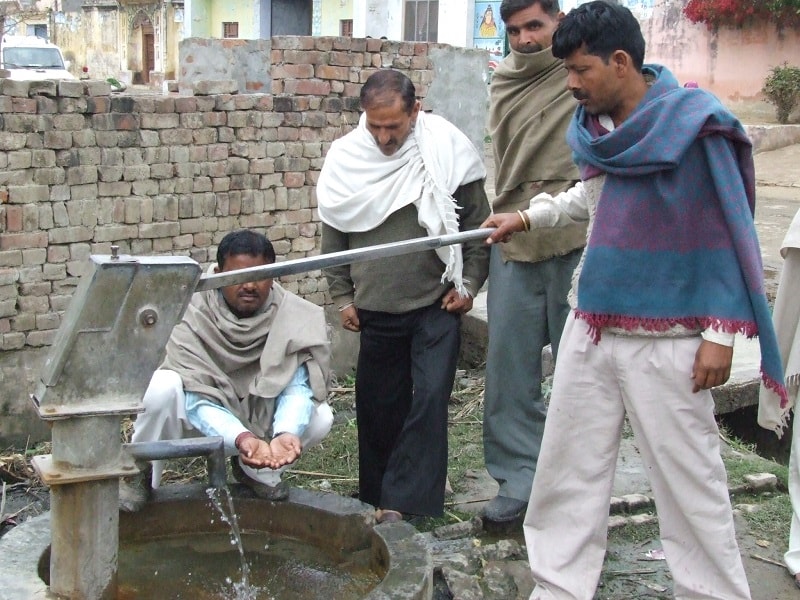
Color - Clean drinking water is colorless. If there is any kind of murkiness in the water then it is unfit for drinking. Presence of any color in the water shows that there is something dissolved in it. In laboratory color of the water is measured with the help of calorimeter. Nearly all water samples collected from the Meerut and Ghaziabad were light yellow or dark yellow in color. The maximum yellow color was visible in the water sample from Gaisupur. The color of the water in nearly all river water samples was black.
Smell - Drinking water should be without any smell. Any kind of smell indicates towards the presence of something unacceptable in it. Water from open wells and hand pumps situated near sewerage drains and ponds contain dirty water smells. Nearly in all the water samples from the Meerut and Ghaziabad regions of an area of study light smell was present and there was a heavy foul smell in the river water samples.
Taste - Clean drinking water should be tasteless. If water tastes then it’s an indication that something has been mixed with it. Taste of the number of water samples collected from the Meerut, Ghaziabad and Bulandsahar regions was entirely different from the drinking water.
Chemical Tests - Different types of chemical tests are performed to get information on substances present in water. Based on these tests of groundwater, chemical properties of Kali River and adjoining areas were determined which are as follow -
P.H. - P.H. denotes result of salinity and acidity. P.H. of normal water is 7.0, which is considered neutral. P.H. above 7.0 shows salinity and P.H. below 7.0 shows acidity. In all the water samples from the area of study P.H> was seen in between 7.0 to 8.2.
Chloride - Water from all water bodies contains chloride. It takes years for water to pass through different layers and then get deposited on the top. During this process chloride present in various layers dissolves with water and gets deposited on the top layer. Chloride is present heavily in sewerage, urine of human beings and animals, one the factors responsible for increased level of chloride in water. According to BIS (1991) standards acceptable limit for presence of chloride in water is 250 mg per ltr and joint limit is 1000 mg per ltr. nearly in all the samples from the area of study level of chloride in water was found to be within acceptable limits. In Gaisupur, Alipur and Chowli level of chloride in water samples was found to be 507, 560 and 255 mg per lt. In river water level of chloride was found to be in between 32 to 128 mg per lt. While in discharge from Anand paper mill level of chloride was 117 mg per lt. Excess of chloride can be harmful for heart and kidney patients. Disorders related to taste and digestion can be seen.
Hardness - Hardness of water is caused by calcium bicarbonate, magnesium bicarbonate, and calcium sulfate and magnesium bi-sulphate. Chemicals like calcium chloride, magnesium chloride, calcium nitrate and magnesium nitrate also increase the hardness of water. Based on this quantity of these elements, hardness of water can be classified in the following manner:
Water purification system is affected when the hardness of water increases substantially. Calcium gets deposited in veins. Although there is no evidence excess of the hardness of water can be a cause for kidney, urine and stomach disorders.
Hardness of water in majority of the water samples collected from the area of study was found to be less than the maximum limit of 600 mg per lt. set by BIS (1991). Except for Aadh, Alipur, Matnaura, Narsal ghat and Anandpur, where hardness of water was found to be 710, 915, 700, 610 and 630 mg per ltr respectively. The hardness of water in all the samples is shown below in table 6:
Washing clothes with hard water requires more washing soap; vegetables take longer to get cooked; calcium accumulates in the arteries and most important it is a causing factor of several kidney, bladder and abdominal diseases.
Calcium - BIS (1991) has set standards for calcium in drinking water at 75 mg per ltr and joint limit at 200 mg per lt. In one of the samples from area of study i.e. Jaibhimnagar quantity of calcium was found to be 320 mg per lt which is more than BIS (1991) joint limit. Calcium is an important element for human beings and everyday it is needed in a small quantity of 0.7 to 0.2 mg for healthy teeths and bones. Pregnant women and growing children also need calcium. Lack of calcium in drinking water may be a cause for bone disorders and weaker teeth. Inside human body major part of calcium is concentrated in the nervous system in the form of phosphorous and carbonic. Calcium is important for nervous system, muscles and prevents the formation of blood clots. Lack of it has its own ill effects on human body and excess of it can be a cause for stones in the kidney and urinary tract, arthritis, and diseases related to bone joints. As such, high as well as low levels of Calcium, both are harmful.
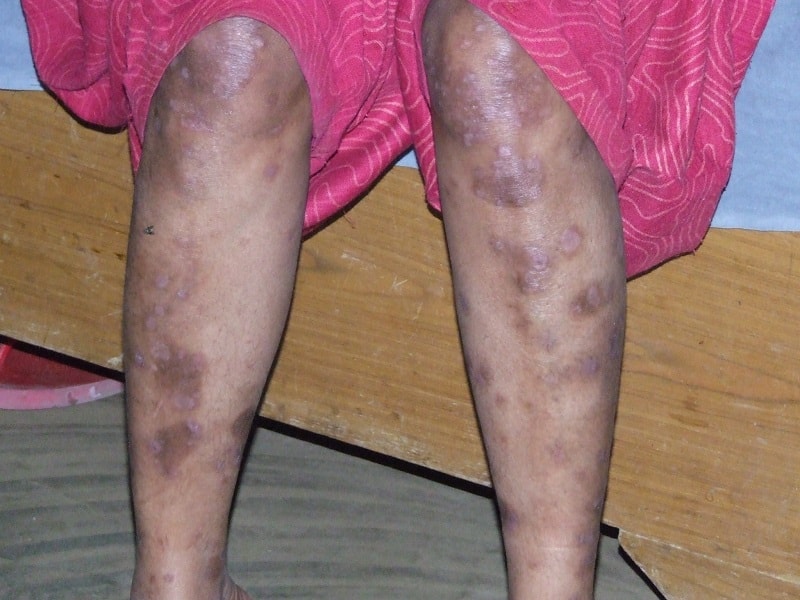
Phosphate - Source of phosphate in groundwater can be both natural and manmade. Natural sources can be geological sources, environmental sources and irrigation sources. While manmade sources can be domestic waste (solid and liquid), chemical fertilizers, natural fertilizers, the fertilizer of bones and waste discharge from factories. Carbonic phosphate compared to carbonic phosphate leaves more of it in land. BIS has not set any standard limit for the presence of phosphate in drinking water. However, its concentration may be a cause for vomit, loose feces, etc. In the ground water samples from the area of study level of phosphate was not found much however in river water it was found to be 8.2 mg per lt.
Magnesium - For human body everyday 200 to 300 mg magnesium is needed and this element increases activity of enzymes. Lack of magnesium causes loose feces, urine disorders and lack of protein in the body. In four water samples from the area of study Alipur, Jaibhimnagar, Mahauli and Aaimanpur qunatity of magnesium was found to be 121,112,104 and 101 mg per lt., which more than BIS joint limit. In all other samples quantity of magnesium was found less than maximum limit and in the river water its quantity was found to be 7 to 53 mg per lt.
Sulphate - I.C.A.R. (1975) and W.H.O. (1971) both have set a standard limit for the presence of sulfate in drinking water at 200 mg/lt and joint limit 400 mg/lit. B.I.S. (1991) has set standard limit at 150 mg/lit and joint limit 400 mg/lit while the quantity of magnesium should not be more than 30 mg/lt. In the water sample from Jaibhimnagar of the area of study was found to be 720 mg/lt. which is more than the maximum limit set by BIS. In Alipur and Daulatgarh level of sulfate was 250 and 355 mg per lt. respectively while its standard limit is 200 mg per lt. In remaining samples quantity of sulfate was found to be below standard limit only. When sulfate ions combine with magnesium and sodium ions of more concentration they cause gastric. If quantity of sulphate in drinking water is more than 500 mg per lt then taste of the water turns sour and gastric problems are felt.
Nitrate - Major sources of nitrate in groundwater are nitrogen present in the environment, bio-activity, geological deposits, and waste discharge from factories, sewerage, septic tank, excreta-urine of animals, fertilizers and agricultural processes. According to BIS (1991), its standard limit in drinking water is 45 mg per ltr and joint limit 100 mg per lt. In Chidaudha, Khokhni, Alipur, Matrauna, Simrauli and Aaimanpur of the area of study quantity of nitrate was found to be 198, 105, 261, 254 and 114 mg per lt respectively, which is more than joint limit set by BIS.
When newly born babies are given water with high concentration of nitrate children get infected with a disease known as synopsis (Mathymoglobimia). This disease is also known as 'Blue Baby'. In the human body, nitrate is first converted into nitrite and then into ammonia by bacteria. When nitrate is available excess quantity then more nitrate is formed which is absorbed by hemoglobin and converted into methemoglobin and then hemoglobin cannot act as a carrier of oxygen to the blood. This disease is not always caused by an excess of nitrate as Macdamat has said in 1971 it depends on the heredity and food habits of a person.








